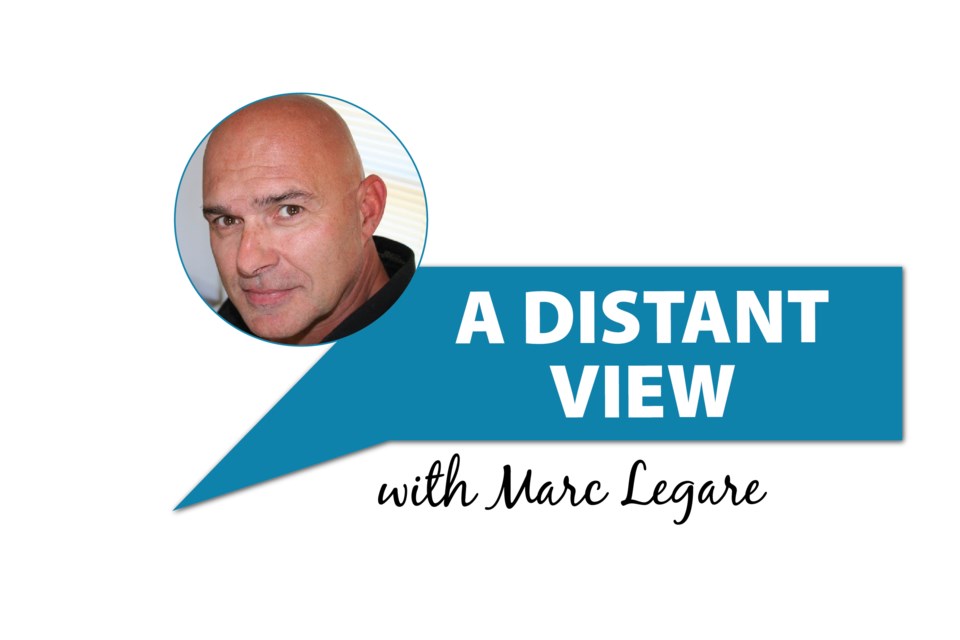Marc Legare is a philosopher and motorcycle adventurist.
He has travelled extensively, worked and lived in Australia, US, and across Canada.
He has a varied working career including: Firefighter, Lawyer, Navy, Motorcycle Importer, plus others.
He chose to return to southern Saskatchewan because of his family's deep roots here.
As a columnist, Legare's columns will offer food for thought.
We are supposedly a morally superior society who live by high-minded and honourable principles that are applied to everyone. No one would dispute that living by objective principles is a hallowed and venerable way to co-exist in our everyone-should-be-included society.
The sad reality is that many have become very good at adjusting, minimizing, or ignoring essential principles in order to accommodate individual viewpoints. Many have strongly held opinions, yet few of those opinions have any objective foundation.
Currently, legions of people are estranged from the underlying paradigm of living a principled life. It seems necessary to remind ourselves what a principle actually means. It is defined as; a fundamental truth or proposition that serves as the foundation for a system of belief or behaviour or for a chain of reasoning. For greater certainty, a principle is the underlying moral or value we apply to a situation to determine what is just or unjust. It goes without saying that any precept must be evenly applied if it is to remain a touchstone, otherwise everything would be relegated to mere individual belief.
"What is good for the goose is good for the gander" fully encapsulates what we once held as an underlying standard. This equality minded saying succinctly holds that if something applies to one person, it applies to others as well. That is about as fair as it gets. Following that creed provides an objective starting point to determine what is fair instead of a murky, shifting subjective view that can go off the rails.
An on-the-street example of this underlying principle is our doctrine of innocent until proven guilty. If we apply the 'good for the goose' code, everyone is entitled to that protection.
Unfortunately, modern society dismisses our tried-and-true creed of 'innocent until proven guilty' regularly. Social media platforms, mainstream news, and individuals unashamedly accuse, judge, and convict people instantly whenever someone speaks out against the status quo of the politically correct.
We have all heard of, or witnessed, instant crucifixions of teachers, professors, elected officials, and others for making a comment that was merely unpopular without examination of any validity behind it. Just because something is unwelcome does not make it necessarily wrong. Consideration of facts in support or negation of that statement or belief should be common practice. That is not the case today. Something spoken need only be unpopular and our electronic town squares will convict the speaker of blasphemy and moral high treason.
How many of us would like to be on the receiving end of such a harsh, nasty, immediate and ruthless conviction? Especially without a presumption of innocence which should result in an examination of surrounding facts.
The world will become increasingly scary and erratic if our commitment to that doctrine deteriorates further. Our society is leaning more and more toward dismissing that criterion as well as many other valuable core intrinsic standards.
Our wise sayings and cornerstone beliefs are fading away. Odd when you think about it. Society screams for equality, yet our 'good for the goose' mentality has gone by the wayside. This suggests many are more interested in appearing enlightened by shouting support for equality but fairness itself is not in their mind's eye. It seems obvious that the distinguished yardstick of 'good for the goose' philosophy is ignored because it applies to everyone, not just the victimized group du jour.
It is no wonder we cannot find the bottom of anything. We have forgotten the basis for our beliefs and ignore any underlying principles behind them. This results in a societal foundation made of sand. If we disregard our foundational underpinnings, why use any moral guideposts whatsoever?
A new aged rewriting of our old adage would go something like this; "What is good for the goose is good for the gander providing the gander is politically correct, if not, the gander can go to hell ".
For those who have such a mindset, that may work, until they are the gander.
The views and opinions expressed in this article are those of the author, and do not necessarily reflect the position of this publication.




